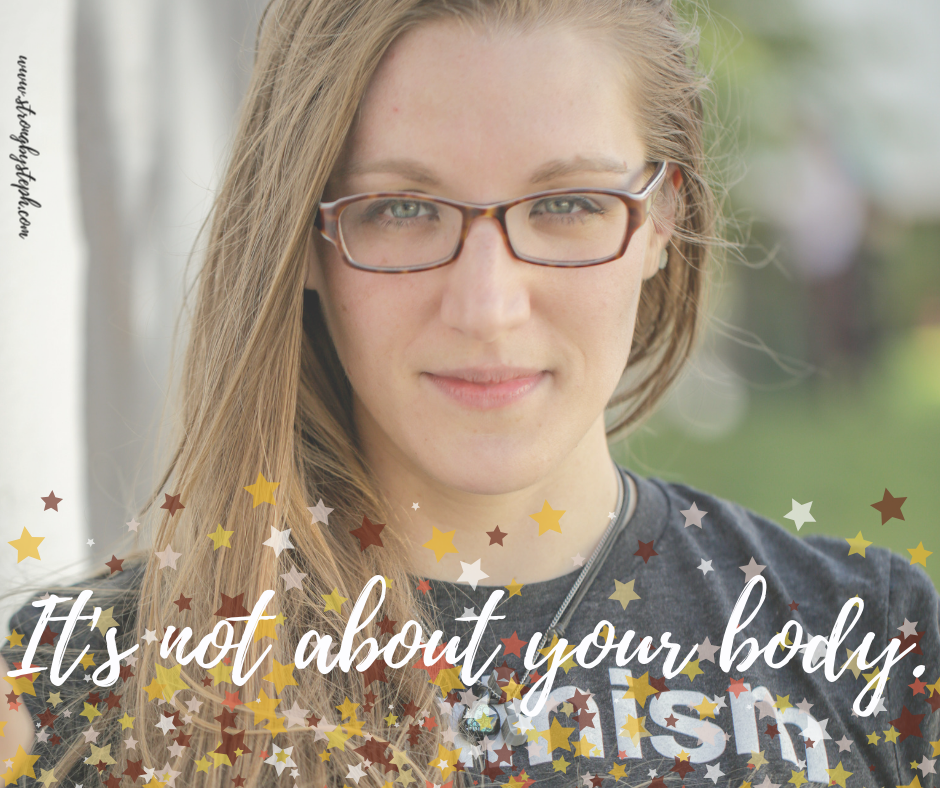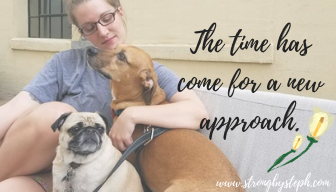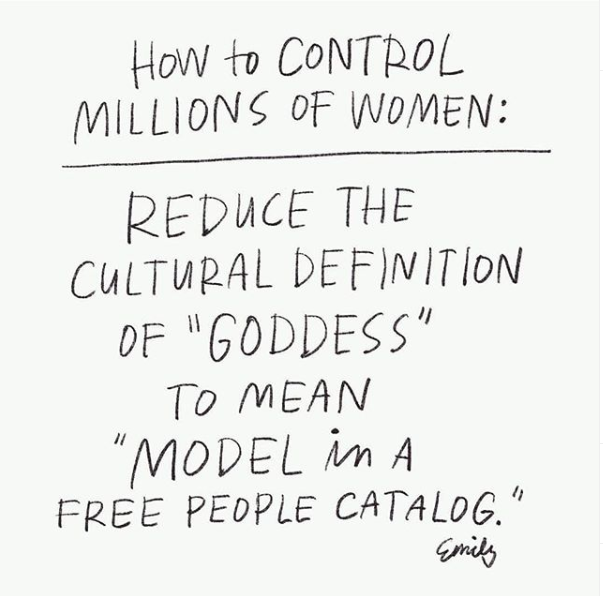Many of us are overloaded, for one reason or another (or several), whether you're still working (thank you, thank you, thank you) or are staying at home (thank you, as well). We're confronted with our feelings and the mechanisms we've been using to avoid them, with nowhere else to go.
This has some of us turning back to old, comforting habits we had previously chosen to let go. If you're there, and struggling ("Why can't I stop eating 'mindlessly'?" "Why can't I stick to the fitness routine I had before this? There isn't that much difference."), I'd like to offer you some compassion: it makes sense, in the face of an unprecedented event, that we'd turn to our oldest, most reliable ways to self-soothe (and, for most of us, food, cooking, reading, sleeping, lots of TV, games, phone scrolling, and all sorts of things we brand as, "lazy," (etc.) in our culture, are what we had access to in our earliest days, or have proven to be most reliable and easily-accessible in other turbulent times).
This has others of us stuck steadfastly to routines, gripping tightly to any sense of "normal" we can find. Our bodies might be clamoring for rest, for slowing down, for comfort, and routines can bring comfort. If you're there, I'd like to offer you compassion as well: it makes sense, in the face of an unprecedented event, that we'd turn to what helps things make sense, to what feels reliable, to our ability to count on ourselves to follow through with what we feel needs to be done.
In either circumstance, we are set on a relatively rigid pattern in hopes that we can reliably bring some sense of predictability in an unpredictable time (and also, in many cases, avoid feeling the very real feelings of fear, of sadness, of anger, of anything you're feeling that feels beyond your ability to cope, especially given then scope of things).
All tagged body image
How to Navigate the Pressure of At-Home Workout Perfection
Yesterday was the first time I've gotten my heart rate up via exercise in over two weeks (I think; I lost track in this YA novel dystopia we're living), and that is okay.
A few years ago, it wouldn't have been.
Now may be a time you're feeling frustrated, pressured, or panicky about your fitness routine or your body image. It's a time of high stress (an understatement), and in times of high stress (especially emotional stress), we turn to what we know, to habits that have become well-worn tracks, to coping mechanisms we've used for a lifetime.
Sometimes this is helpful; others it is not.
If you're struggling with feeling like you're not doing the "right" thing when it comes to exercise and movement amidst global chaos, I invite you to ask yourself why you're putting so much pressure on yourself to move in the first place.
Is This You? [[Last Call!]]
So, you’re sitting there, half-drunk smoothie at the corner of your desk, zoned out on a Thursday with the trillion things you have to do before you bring work home for the weekend running through your mind. You’re wondering why this smoothie doesn’t just taste better and why exercising feels like such a chore and why you never follow through on anything, and this ever-growing to-do list gumming up the works like the smoothie that won’t come through the straw is proof.
When you think about the person you want to be—that you swear you could be, if you just got it “right”—instead of feeling inspired, you mostly want to take a nap. Having enough time to do that, though, is laughable, so you grit your teeth and think, “just one more day/week/month.” You know you’re juggling too much, but you’re not sure how to stop. It all feels so urgent, so important, so much like no one else will do it if you don’t (and it needs to get done, so guess what!). What you really want is someone to take a good look at it all and help you see what you can put down so you feel like you again.
→ Hi, hello, this is what I do. ←
If You're Tired of Feeling Confused, Beaten Down, Powerless, and Stressed About Fitness...
Body image work is life-changing, truly transformative work.
But why is a positive body image so important, though?
Staying preoccupied with thoughts about your body is a distraction.
It keeps you from showing up in the world, constantly telling you you’re not enough, at least not until you lose that weight or fit back into that old pair of jeans.
It’s keeping you from sharing YOUR unique magic with the world, and that’s something we’d all be lucky to see.
It's also creating a world that further marginalizes those in larger bodies, or disabled bodies, or bodies that don't conform to an ever-shrinking standard. It's confining to all of us, keeping all of us from being fully ourselves without apology (and without the room to even exhale fully, letting our hair down and our bodies loose).
Having a positive body image is about SO much more than thinking your body looks good.
It's Early on a Tuesday Morning in January: Are You Telling Yourself You "Should" Be at the Gym?
It's early on a Tuesday morning in January: are you telling yourself you "should" be at the gym?
Time, even if we have an excess, can feel squished and squeezed like every minute is promised to someone/thing. It's common for the womxn with whom I work to schedule themselves last, if at all.
Like many others, time is not only a static thing, but also a thing with which we are in relationship. What I mean:
When you think about how much time you have, do you consider how you'd like to fill it before you do so? Do you consider if some things will take a disproportionate amount of time up front, knowing they will take less time as you gain experience and efficacy? Does that prospect make you feel daunted, or do you feel excited by the idea? Do you feel like everything will be okay if you're "off schedule," or does that make your palms sweat thinking about "making up" "lost" time? Is time ever really lost at all?
Put another way:
Is discipline, a hallmark of #dietculture/#hustle culture, holding you back?
-
[possibly. probably.]
You Have More to Do with Your Life Than Change Your Body.
We often do not separate our beliefs about our physical bodies from the rest of us, in our current culture.
We try to pretend like we can/do, or like this programming doesn't run deep snaking its tentacles into every crevice of our lives, but it always catches up to us. We believe certain things about certain bodies (+ certain habits, + certain ways of showing up in our lives), and, for most of us for quite some time, we do our best to distance ourselves from the shame spiral created by a world profiting from as many people feeling as bad as possible about themselves (so we can be sold a solution). The process of shifting all these beliefs—of seeing them for what they are and how they've impacted you + those around you—is often lengthy, imperfect, uncertain.
It's also freedom and truth.
A recovery not just of your full humanity but all of ours.
You are (and we all are) so much more than a body.
What You're REALLY Saying About Yourself When You Talk About Your Body
When you’re in the soup of diet culture, believing your (allegedly unlovable, misshapen, wrong) body is all that you are, loving it can seem so far away it feels surreal.
Learning to detach our worth from our appearance doesn’t require that we actively love every inch of ourselves. It would be disingenuous and harmful to proclaim that feeling worthy of love, respect, and belonging can only happen once you love every inch of your body. But, maybe, we could get to a place where we all realize, with every waking moment and throughout every single interaction, we are more than our bodies (easy to say we know this, but how often are you on the receiving end of judgments about your ability to perform at work because of your gender presentation, for example? How often do you make assumptions about someone's strength or stamina because of their body size?).
When working with body image clients, one of the first things I invite them to do is to examine the language they use to describe their bodies. It is often illuminating how potent that vitriol can be.
Is it any wonder self-love feels far away when the script we play is a constant stream of, “gross,” “sluggish,” “lazy,” “flaky,” “undisciplined,” and the like?
What Is Weight Stigma? (And What Can You Do About It?)
It’s important, here, to acknowledge weight stigma harms all of us, and it harms the most marginalized among us (e.g., womxn of color who are fat, of lower socioeconomic status, and/or trans) most of all.
While it may seem a far-fetched conclusion if you’ve never experienced it firsthand, the effects of weight stigma are very real, and often show up in pronounced ways in healthcare and medical settings (which is why it has a place here, in fitness—the “average” sized womxn IS “plus size,” and part of helping someone with their health is treating them with compassion and respect, in my book). We often hear rhetoric about , “glorifying ob*sity,” and being a burden on the healthcare system, but the reality is most folks are simply trying to live and navigate an environment and a culture actively opposed to their existence (see: Today’s Dietitian for a thorough article on the prevalence of weight stigma, internalized vs experienced stigma, the health effects of weight stigma (especially in healthcare — a 2017 study found that doctors are the #1 most common source of weight-based stigma!), social media, and more).
Does It Feel Like, "Loving Your Body," Is Only For Other People?
I know many people who wake up every morning, and right before they look in the mirror to greet themselves for the day, they feel pure terror. Dread. Fear. We steel ourselves up to brace for the, "flaws," someone else has told us will be there, and we wonder how, "bad," they look that day, and the chorus starts:
"Ugh, gross."
"I can't wear that. Do I have any clean, flowy tops?"
"I'm giving a presentation today; will this hold across my chest?"
"I shouldn't have eaten ____ last night. I never get this right."
We've discussed it before, but it bears repeating: the language you're using has a measurable impact on your perspective.
Many clients come to me unhappy with their bodies, desperately hoping that the program I present will hold all the secrets to body change, and, as a result, happiness. They're disappointed to find out that it doesn't always work that way, and, in fact, countless repeated incidents of this led me to examine my coaching philosophy, such that I no longer coach with a focus on intentional fat loss.
Liking our bodies (and ourselves) is an inside job, one that can't be completed in an hour a day at the gym and a salad every night for dinner. It's a practice, and it often feels unreachable: how many times have you asked yourself, "how do I go from hating everything about my body to loving it? LOVING it?"
It seems a million miles away for a lot of us. It did for me.
Why the Words We Choose to Describe Our Bodies Matter
I know many people who wake up every morning, and right before they look in the mirror to greet themselves for the day, they feel pure terror. Dread. Fear. We steel ourselves up to brace for the, "flaws," someone else has told us will be there, and we wonder how, "bad," they look that day, and the chorus starts:
"Ugh, gross."
"I can't wear that. Do I have any clean, flowy tops?"
"I'm giving a presentation today; will this hold across my chest?"
"I shouldn't have eaten ____ last night. I never get this right."
The language you’re using has a profound impact on your perspective.
Many clients come to me unhappy with their bodies, desperately hoping the fitness program I write will hold all the secrets to body change, and, as a result, happiness. They're disappointed to find out that it doesn't always work that way, and, in fact, countless repeated incidents of this led me to examine my coaching philosophy, such that I no longer coach with a focus on intentional fat loss.
Thinking About Thinking (How to Examine What You Think, What You Know, and What You Think You Know)
Challenging our beliefs is one of the most pivotal practices in which we can engage, in fitness and in life, AND, it is not easy.
What does it mean to, “challenge your beliefs?” Quite simply, to consider you may be wrong. To acknowledge you are looking through a lens that may or may not be shared by those around you. To realize what you know is informed by your position or experience, and there are others out there. To wonder, “if this is true for me, but not true for another person, why and where exactly do our experiences differ? What common ground exists? Could I expand my perspective?”
A (cough) challenging practice, to be sure. What’s good for us doesn’t always feel good at every moment.
Why would you want to do it?
Stigma, shame, and disconnection all heavily contribute to negative health outcomes, for ourselves and others, for starters. All of those behaviors begin from the beliefs we hold, particularly, in the fitness industry, about which behaviors and bodies are acceptable, visible, and worthy of respect (and, by contrast and extension, which are unacceptable, invisible, and shame-worthy).
Put in fitness context specifically, every time you say you, "can't eat that," about your favorite food, for example, you're denying yourself pleasure and joy, making a judgment on what you think you deserve, and implying certain foods are meant for certain bodies (and those bodies only).
Sound like what you mean? Is that even accurate to what you intended to say? I didn't think so.
Are You Hiding? 👀👀 (One Shift to See More Progress Instantly)
A lovely thought to consider: we’re all these big, powerful, multitudinous forces, under the surface, imprisoned by nothing but our thoughts. That’s true for some of us, and others of us are kept in hiding by bigger forces making it unsafe to show the whole of who we are. It’s worth considering why any one of us isn’t allowing our full selves to shine; I’d imagine, if we pull on these threads, we’re playing roles we didn’t necessarily choose and staying in them most of all because it’s easy to do so, no matter how uncomfortable it may be.
How do we get from keeping our heads down, hiding away, playing our parts to the bold, unapologetic, magical mermaids we are? Some common advice is to, “fake it ‘itl you make it.”
I’m not big on, “fake it ‘til you make it,” because that feels really…cheesy and inauthentic to me.

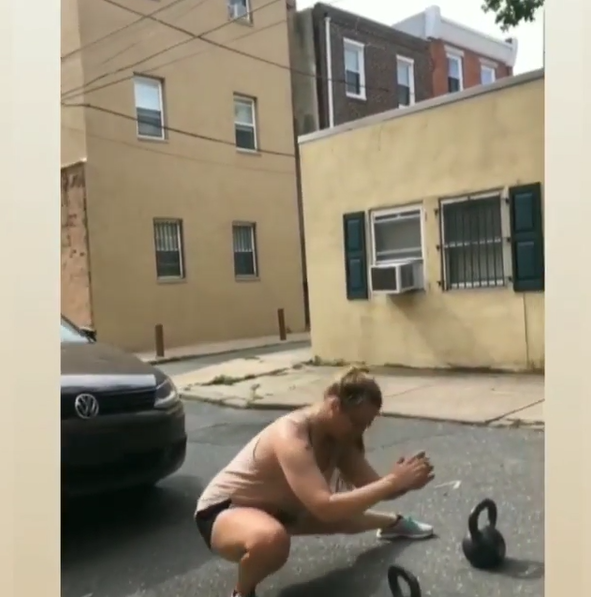
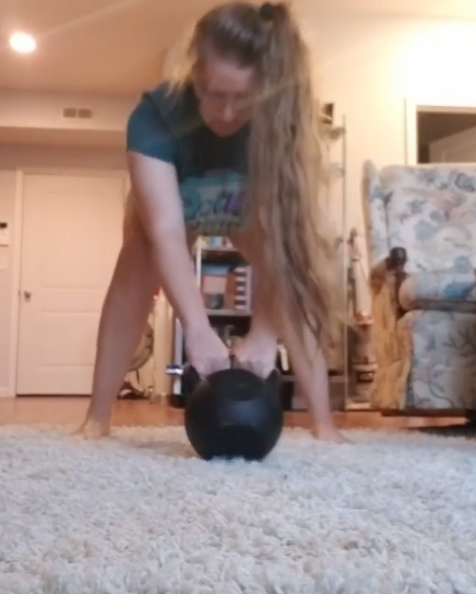
![Is This You? [[Last Call!]]](https://images.squarespace-cdn.com/content/v1/575ab1663c44d8a71ac717dd/1580137502641-XX7TTUDO54434JMCPDBO/something+magical.PNG)
